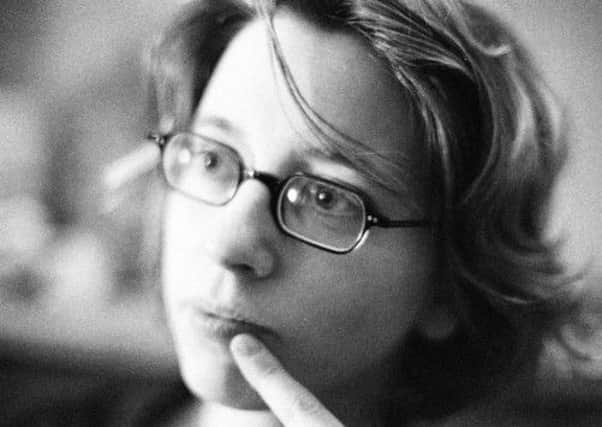Shooting the past – images from a wild teenage life


Back in the late Nineties Carol Morley had an idea for a documentary that no one else seemed to want to make.
It was a film about a teenage girl in Manchester in the 1980s, out of control, frequently drunk, sleeping around and generally behaving badly. The girl was Morley herself. And as much as it was a warts-and-all portrait of her, Morley considered it as a document of the life she had lived and the times she had seen, albeit through glazed eyes.
Advertisement
Hide AdAdvertisement
Hide Ad“Why would I want to make a film about this promiscuous girl?” asked one member of a funding panel. Morley’s application was refused. And when she did finally scrape together enough cash to make what became The Alcohol Years she had to persuade names and faces from her past to dredge up sometimes uncomfortable memories.
The film that eventually emerged in 2000 has been attacked as shallow, egotistical, self-regarding and self-obsessed. Yet for Morley herself, sitting silent behind a camera, it was a chance to re-connect with a life she had largely forgotten and with people she had left behind in a drink-sodden whirl of sex, drugs and rock ‘n’ roll.
Morley claims she had never been nostalgic about her early years. It was a time when things were happening. The Hacienda was being created by Tony Wilson in a run-down part of Manchester. No one yet lived in the city centre. As one of her interviewees wittily remarked “There was no place to get a cappuccino”.
Someone else went further. “It was always 1960s Manchester; there was always a touch of the Moors Murderers. You never got away from it.”
Advertisement
Hide AdAdvertisement
Hide AdAnd for Morley, then 33, looking back led to an acceptance that there had been bad times, such as the suicide of her father, and great times with friends, lovers and other interested parties.
“Going back to make that film came about because I met someone who said ‘I used to know you in Manchester’,” recalls Morley. “I didn’t remember him. And I didn’t remember any of the stories he was telling me.
“That’s when I began to get interested in this idea of going back and putting stuff together that I really had forgotten, either through alcoholic endeavour or maybe through what happens.” Morley never considered the film as an exorcism. Instead it was cathartic. Did she recognise the person she had been: the wild, fun-seeking lass who seemed to spend much of her time smashed out of her head? She laughs.
“The one reason I did like her was because she enabled me to make a film about her. So I was glad that that person had existed,” she says.
Advertisement
Hide AdAdvertisement
Hide Ad“No one wants to be thought of as narcissistic or self regarding. I really didn’t care about who I’d been as much as the story that it generated and the insight it gave into the people that were part of that scene.
“I never wanted to make someone feel bad about what they were saying so I was always behind the camera and looking through the viewfinder but never judgemental,” she observes.
Morley will be reunited with several of her interviewees at a screening of The Alcohol Years at Hebden Bridge Arts Festival tomorrow night. “I met someone who said he’d seen The Alcohol Years. I said I can’t really watch it now because I think of the people that are connected to it who have died. And he went ‘Yeah, but at some point everyone in the film will have died’.
“That made me feel weird because it felt like history. If it stays in some archive, someone can always look at it. You can’t ask for more than that.”
Advertisement
Hide AdAdvertisement
Hide AdCarol Morley is at Hebden Bridge Trades Club as part of Hebden Bridge Arts Festival. The event begins at 7.30pm.
A different kind of documentary
So many documentaries are concerned with people making films about other people’s lives while never exposing anything about them. Morley was attracted to the latter element of the concept: that whatever she had done in the past enabled her to make her film.
Later, on the film’s release in the UK, someone remarked that documentaries generally focus on people who died young but become about the director. In Morley’s case they felt that the end result became about other people, not her.
One definite decision Morley reached with her producing partner Cairo Cannon was that she would neither appear in the film nor respond to her subjects’ comments. To do otherwise would have introduced a form of censorship.